In the realm of flooring options, vinyl and laminate stand out as affordable alternatives that mimic the natural charm of wood and stone without breaking the bank. These two contenders have become increasingly popular for their versatility, durability, and cost-effectiveness. However, how do you know which is the better option for you and your home’s needs? Don’t worry, we have you covered! In this comprehensive guide, we’ll take a deep dive into vinyl and laminate flooring, comparing their costs, exploring the pros and cons, and highlighting key differences. At the end of this blog, you will have a better understanding of vinyl flooring and laminate flooring, and will be able to make the decision on which option would be best for your home.
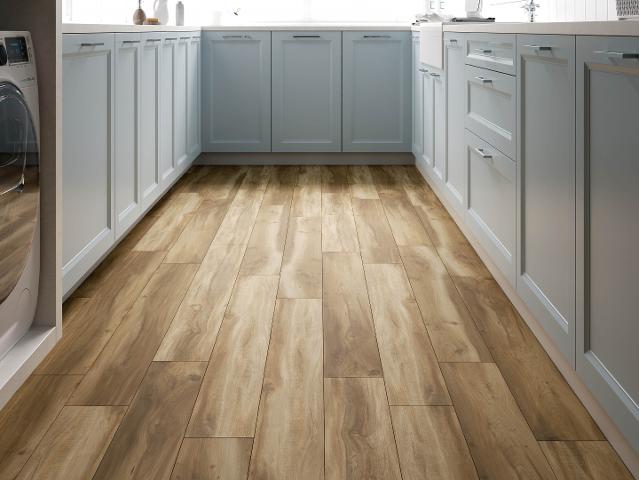
What is Vinyl and Laminate Flooring?
Vinyl flooring is a synthetic product made primarily of polyvinyl chloride (PVC), with various layers that contribute to its resilience and aesthetics. The top layer is a protective wear layer that shields against scratches and stains. Beneath that, a printed design layer mimics the appearance of natural materials, and the core layer provides stability.
On the other hand, laminate flooring consists of a high-density fiberboard (HDF) core. HDF core is a photographic layer for realistic visuals, and a clear protective layer. Laminate planks often have a click-and-lock system, making installation a DIY-friendly process. We’ll discuss more of the DIY aspect as we discuss which option is better below.
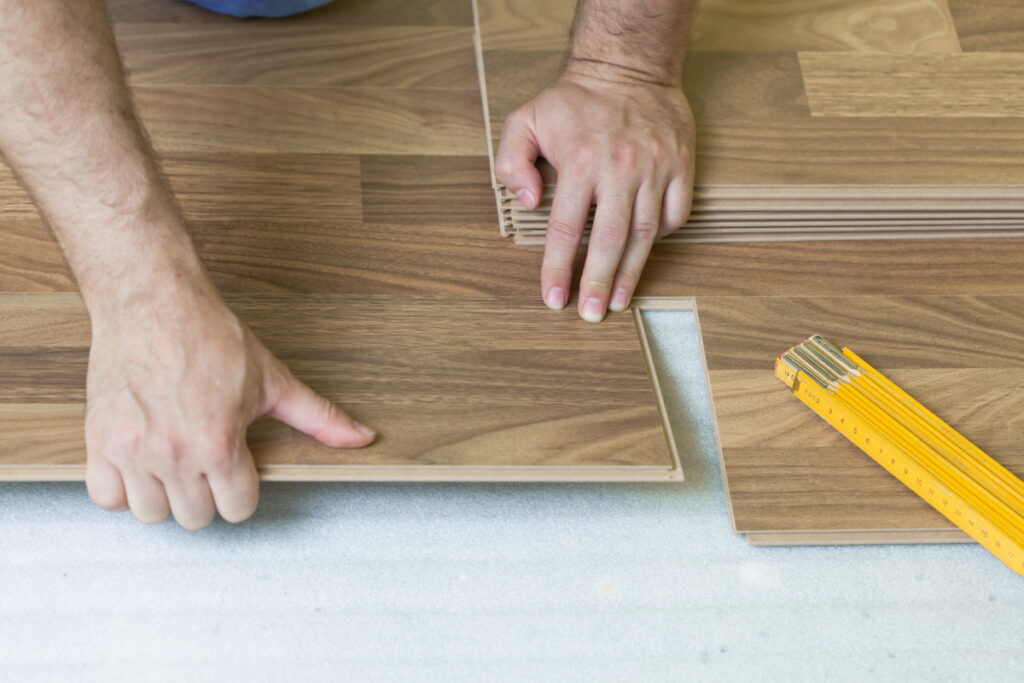
Vinyl vs Laminate Cost: Which is More Expensive?
When it comes to affordability, both vinyl and laminate flooring emerge as budget-friendly alternatives compared to hardwood or stone. The price range for vinyl flooring typically falls between $2 and $7 per square foot, making it an economical choice for various budgets. Laminate flooring, with a price range of $1 to $5 per square foot, is generally on par with vinyl in terms of cost.
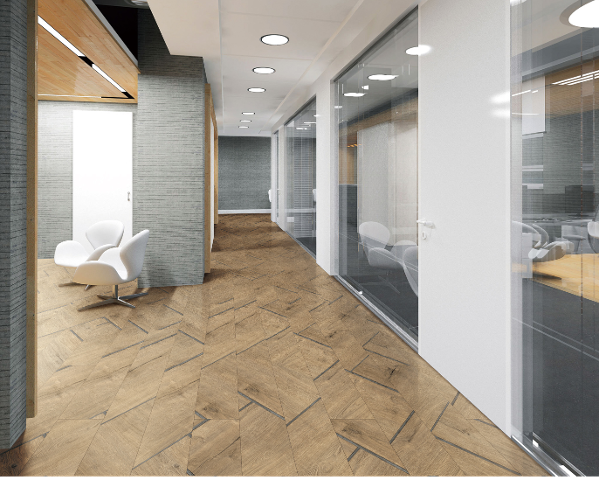
However, it’s essential to note that premium vinyl options, boasting enhanced features and designs, can be relatively more expensive. Despite this, both vinyl and laminate remain cost-effective choices for those seeking stylish, durable flooring without a hefty price tag.
Vinyl vs Laminate Pros and Cons: Which is Better?
Vinyl and laminate flooring options both offer a multitude of pros with some cons depending on where you plan on using the flooring. Let’s review some different use cases of vinyl flooring and laminate flooring through recommended rooms, appearance and design, ease of installation, cleaning and maintenance, and durability and long term value.
Recommended Rooms
Both laminate and vinyl flooring are known for their scratch and stain resistance. However, vinyl takes the lead in water resistance, making it an ideal choice for moisture-prone areas like kitchens, bathrooms, basements, and mudrooms. Laminate, while resistant to water, is not as impervious as vinyl.
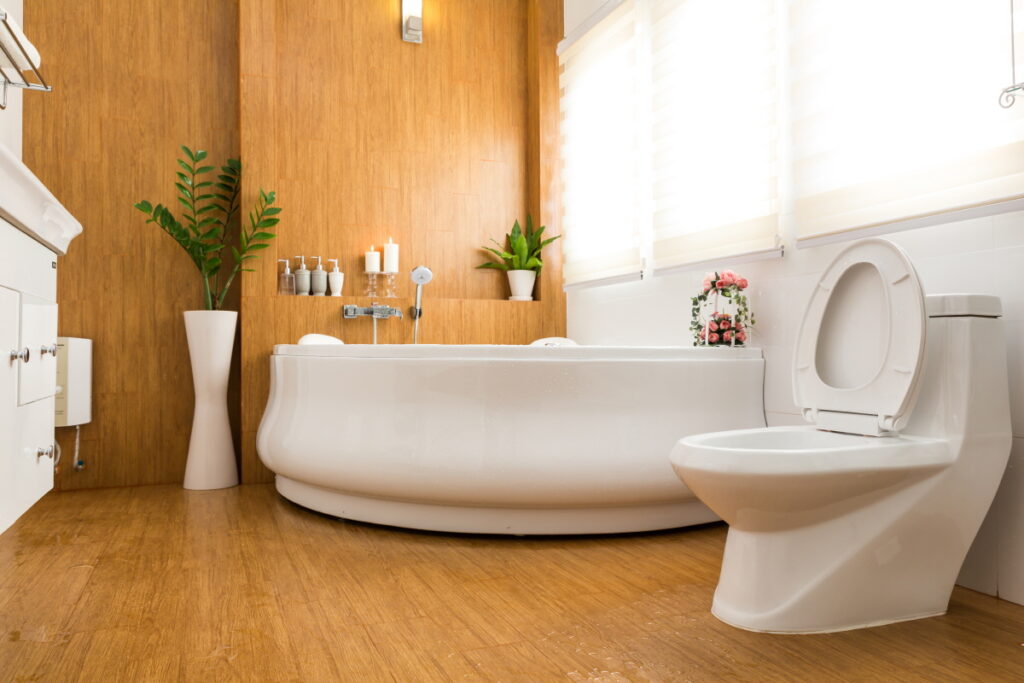
Appearance and Design
Vinyl and laminate flooring excel in imitating the aesthetics of natural materials. Vinyl, with its advanced printing technology, can replicate the look of wood or stone convincingly. Laminate also offers a broad range of designs, often indistinguishable from real hardwood or tile.
Ease of Installation
Laminate flooring is renowned for its user-friendly click-and-lock installation system, making it a popular choice for DIY enthusiasts. Most people who go into the process of choosing flooring knowing they will do it themselves, opt for laminate just for the ease of installation. Vinyl, while still manageable for DIY installations, may require more precision, especially with glue-down or loose lay methods. However, most who know they may be using a professional or at least someone with experience in flooring installation, opt for vinyl flooring.
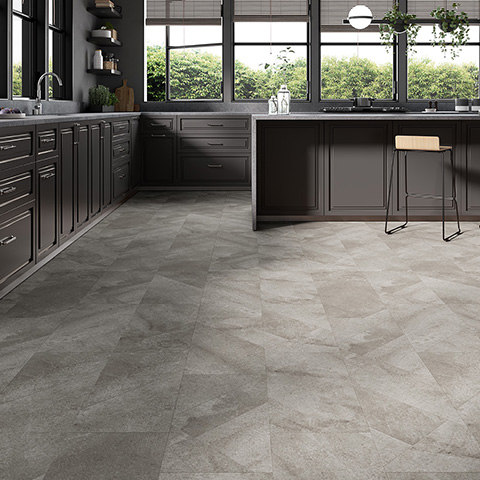
Cleaning and Maintenance
Both vinyl and laminate are relatively easy to clean and maintain. Regular sweeping and occasional damp mopping are usually sufficient to keep these floors looking their best. It’s important to note that excessive moisture can damage laminate flooring, so it’s crucial to avoid excessive water during cleaning in order to maintain them. However, since vinyl flooring can sustain more water, it will maintain even through spills and cleaning.
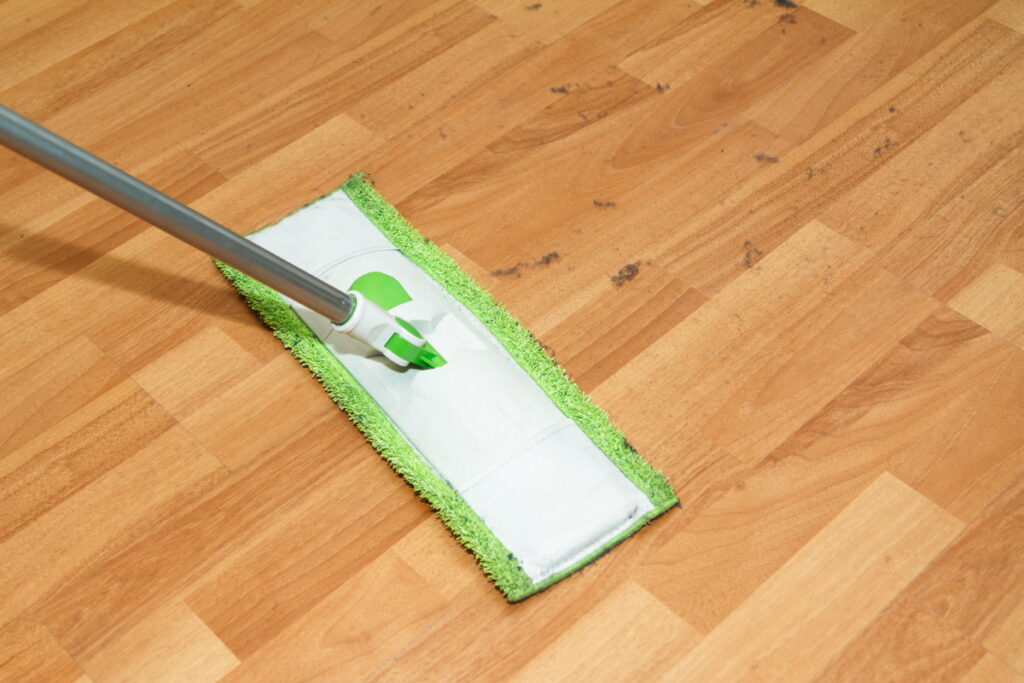
Durability and Long Term Value
In terms of durability, both vinyl and laminate are resilient options. Vinyl, being water-resistant, has an edge in areas prone to spills or humidity. Laminate, however, can withstand heavy foot traffic and is resistant to fading from sunlight. Both options offer long-term value, with warranties ranging from 10 to 25 years or more, depending on the product and quality of the specific brand. This is truly where you need to think through where you will be using the flooring and what it may endure in those 10 to 25 years before choosing what option would be best for your home.
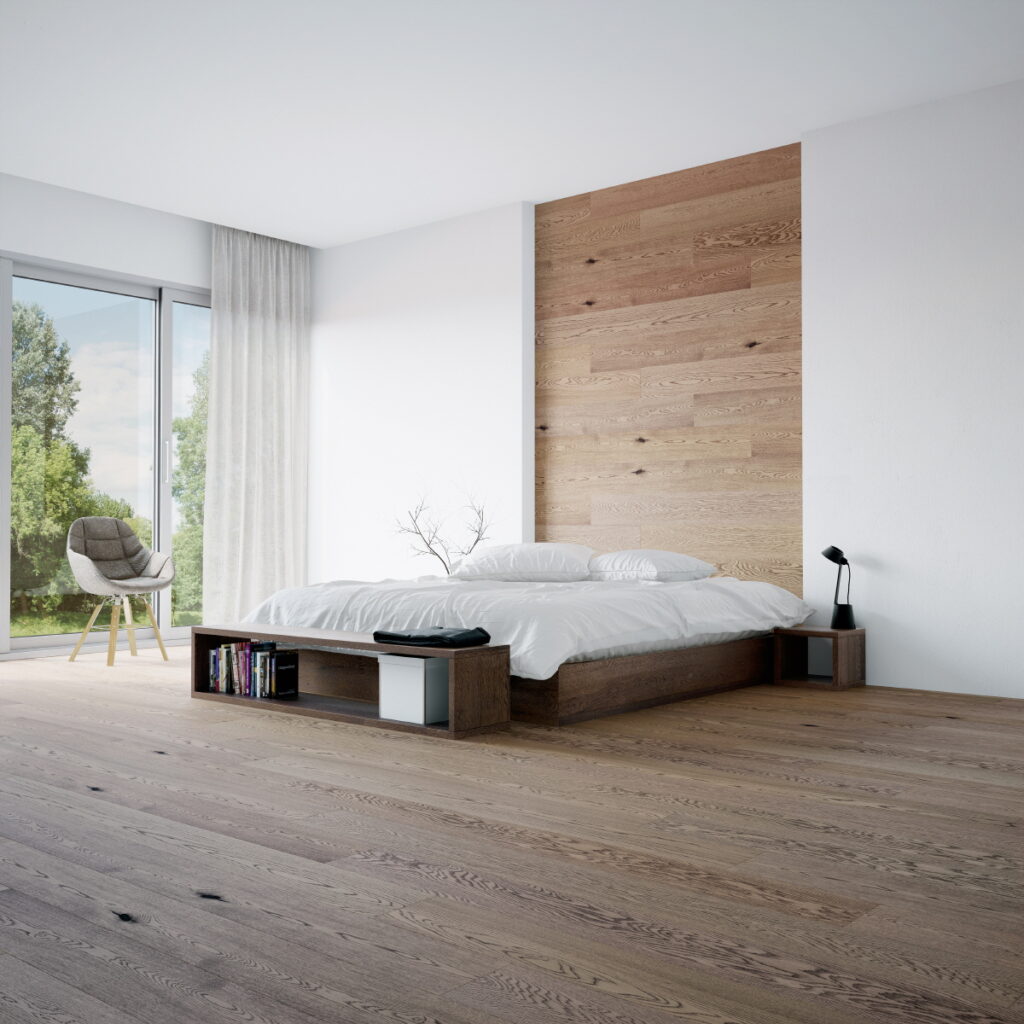
Vinyl vs Laminate Differences: Summary
We’ve covered a lot in this blog about the differences in vinyl and laminate flooring options. Let’s do a quick review of the differences in vinyl and laminate flooring:
| Vinyl Flooring | Laminate Flooring | |
| Materials | PVC | HDF (High-Density Fiberboard) |
| Cost Range per sq. ft. | $2 – $7 | $1 – $5 |
| Rooms Best Suited For | Water resistant, suitable for various rooms | Suitable for most rooms, but less water resistant |
| Installation | Somewhat DIY-friendly, various installation methods | Super DIY-friendly, click-and-lock system |
| Cleaning | Easy maintenance and water resistant | Easy maintenanace, but avoid excessive water |
| Durability | Resilient and water resistant | Resistant to heavy foot traffic, but cannot handle a lot of water |
| Long Term Value | Typical 10-25 year warranty | Typical 10-25 year warranty |
Contact us
The choice between vinyl and laminate flooring ultimately depends on your specific needs, preferences, and budget. If you’re looking for superior water resistance and a versatile option for moisture-prone areas, vinyl might be the better choice. For those who value a DIY-friendly installation process and desire a variety of designs, laminate flooring is a strong contender.
For expert guidance on selecting the perfect flooring for your space, feel free to reach out to LX Hausys. Our team is ready to provide valuable insights and assistance in making the right decision for your flooring needs. Contact us today for a flooring solution that combines style, durability, and affordability.
